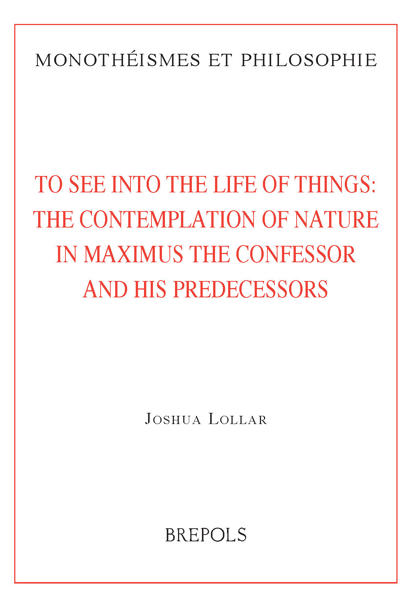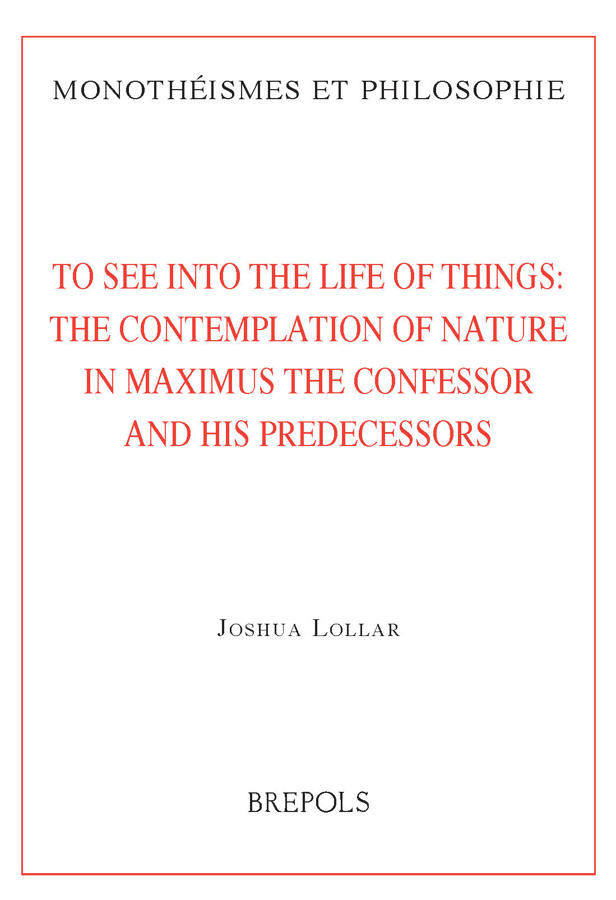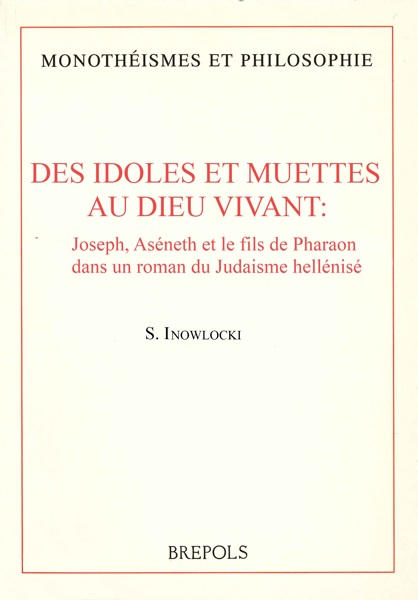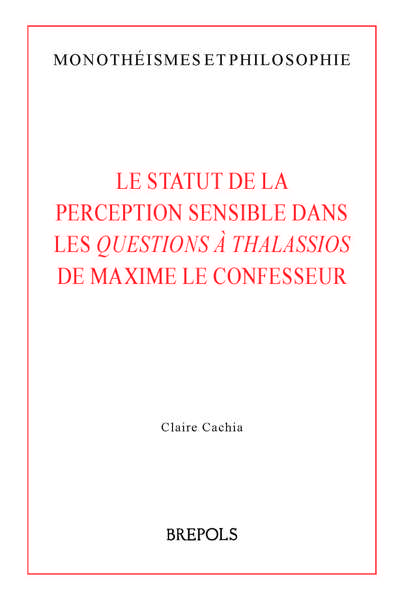
To See into the Life of Things
The Contemplation of Nature in Maximus the Confessor and his Predecessors
Joshua Lollar
- Pages: 357 p.
- Size:150 x 210 mm
- Language(s):English, Greek
- Publication Year:2013
- € 95,00 EXCL. VAT RETAIL PRICE
- ISBN: 978-2-503-54893-7
- Paperback
- Available
- € 95,00 EXCL. VAT RETAIL PRICE
- ISBN: 978-2-503-57270-3
- E-book
- Available
This work provides a synthetic treatment of Maximus the Confessor’s Ambigua to John, a collection of texts uniquely expressive of the speculative contours of his thought.
"Lollar's book (...) breaks free of earlier studies (...), by exploring not so much what Maximus thought of natural contemplation as how he proceeded to engage in it, how he thought contemplatively and modelled this pursuit of wisdom for others. (...) A genuine strenght of Lollar's study is his exposition of the varied nuances of 'nature' itself in Maximus's instruction in the contemplation thereof." (Paul M. Blowers, in: Journal of Theological Studies, 66.1, April 2015, p. 462- 464)
"Bien informé de la tradition antérieure à Maxime, il se fonde sur l'analyse de quelques textes particulièrement importants et a le mérite de proposer par cette voie une nouvelle synthèse sur la "contemplation de la nature" chez l'auteur des Ambigua." (Michel Fédou, in: Recherches de science religieuse 104/1, 2016, p. 145-146)
Maximus the Confessor (580-662) is one of the great minds of the Christian tradition and his Ambigua to John are a collection of texts uniquely expressive of the speculative contours of his thought. They have not, however, received a synthetic treatment until now. This work provides such a synthetic treatment and argues that Maximus’ central concern in the Ambigua to John is to articulate the nature of philosophy and, more precisely, the scope of the contemplation of nature (θεωρία φυσική) within the philosophical life, where "philosophy," the love of wisdom, is nothing less than the love of the Divine. Part I of this study provides a thorough background in Greek philosophical and patristic philosophies of nature, showing how Maximus’ predecessors understood knowledge of the world in relation to philosophical life, discourse, and praxis. Part II studies the contemplation of nature in the Ambigua and analyzes Maximus’ account of human affectivity in the world, his account of the coherence of philosophical life (praxis and contemplation) as a response to this affectivity, his understanding of the relation between God and the world, and his reconciliation of these various aspects of philosophy in the Christian economy of salvation, which he understands as the renewal of nature and its contemplation.
Preface and Acknowledgements
Chapter 1: Introduction
Part I: Maximus’ Philosophical and Patristic Foundations
Chapter 2: The Contemplation of Nature in Greek Philosophy
Chapter 3: The Contemplation of Nature in the Greek Fathers
Conclusion to Part I
Part II: The Contemplation of Nature in the Ambigua to John
Introduction
Chapter 4: Pathos–“What is the Wisdom Concerning Me?”
Chapter 5: Ethos–Praxis and the Contemplation of Nature
Chapter 6: Cosmos–God and the World
Chapter 7: Logos–Christ and the Renewal of Nature
Conclusion to Part II
Epilogue
Appendix: Overview of the Structure of the Ambigua to John
Bibliography
Index




